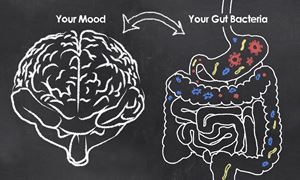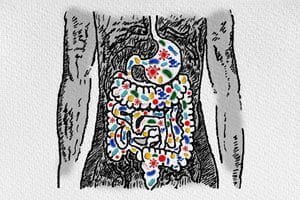
The laboratory of Brittany Needham, PhD has been one of the first to demonstrate a direct causative relationship between gut biosynthesis of a specific bacterial metabolite and altered brain activity and behavior. They have established a template that can be expanded to study additional bacterial molecules correlated with a range of host phenotypes and delve further into the chemical signaling that occurs.
The research team studies bacteria that live in the human intestine: what they eat, what they make, and how they influence our health.

The gastrointestinal tract contains many diverse cell types in close proximity, and the coordination of their signaling is critical for proper gut homeostasis and health. The dense microbial community residing in the lumen of the intestines, the gut microbiota, dwells intimately along the intestinal epithelium. Immediately beyond in the intestinal tissue, multiple layers of musculature and most of the body’s immune cells are found. Millions of neurons innervate the gut and connect to the spinal cord and brain. The communication between all these cell types is carefully regulated, and its disruption can lead to a variety of conditions in the gut and beyond to sites as distant as the brain.
